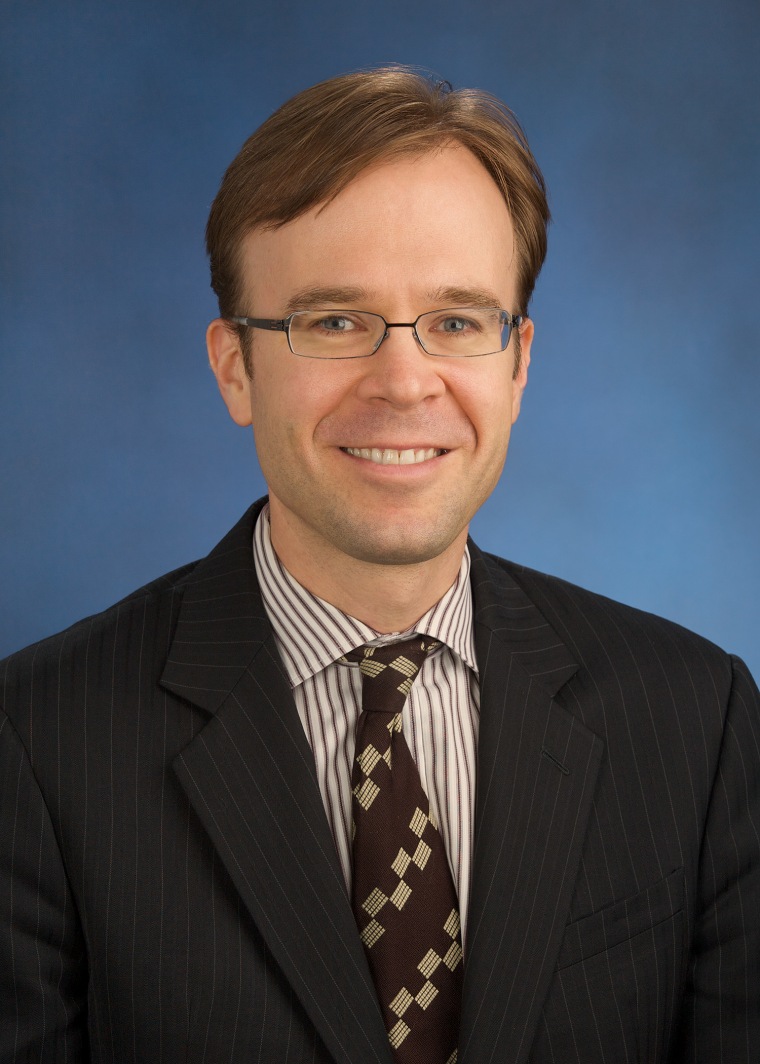It’s fair to say that a year ago nobody saw this coming.
Heck, even six months ago, when there was a growing sense that the economy was in recession, there was no official confirmation. And even when the downturn was growing crystal clear over the summer, there were few signs of the disaster that lay ahead.
Such are the perils of economic forecasting.
At msnbc.com, we ask our virtual roundtable of economic forecasters to gaze into the crystal ball every December and predict what conditions are likely to prevail a year into the future. They gamely give it a go, but a lot can change in a year.
This year our panelists don’t look terribly prescient, as a year ago all 10 expected the U.S. economy to show slow growth for 2008 but avoid recession. As we now know, the economy has been in recession for a year, and the downturn looks likely to extend well into 2009, if not beyond.
Nobody on our panel expected the unemployment rate to rise above 5.5 percent; in fact, it hit 6.7 percent in November. Nobody expected the benchmark federal funds bank lending rate to fall below 2.5 percent; in fact, it is near zero.
"Generally people underestimate volatility on both sides," said Jan Hatzius, chief U.S. economist for Goldman Sachs. "Good things feed on themselves, and so do bad things, in myriad ways that go beyond the capabilities of our models."

Hatzius wins this year’s title as most accurate forecaster among our panel, which is basically saying he was about the most pessimistic of the bunch. Still, he was hardly pessimistic enough.
He expected the nation’s gross domestic product to grow by about 1.8 percent this year. Now it looks like GDP will grow just 1.3 percent, with the economy shrinking at a 5.4 percent rate in the final quarter of the year, according to our consensus forecast.
Economists Ethan Harris of Barclays Capital and David Rosenberg of Merrill Lynch win honorable mention for accuracy and landed in second and third place, respectively, in our proprietary ranking system. (Msnbc.com ranks the forecasters based on how accurately they predicted GDP, unemployment, “core” consumer inflation and short-term interest rates. For a look at the predictions made a year ago, click .)
To be fair, plenty of forecasters were downbeat about the outlook a year ago as the housing bubble collapsed and stock prices began sliding. By early January, about three weeks after our year-end roundtable was published, Rosenberg declared that the U.S. had entered a recession, and Hatzius and his team at Goldman Sachs publicly predicted recession, but there were some tense times for the forecasting team, he said.
Economic data in the spring were mixed, and the widely recognized body that establishes the dates for business cycles did not declare a recession until Dec. 1, when the experts said the economy had been in recession for a year.
"Being wrong about a recession call is very unpleasant," Hatzius said. He and his colleagues "were definitely sweating a bit in the spring, so even though it worked out I can relate to the reason why people are generally reluctant."
Mark Zandi, chief economist at Moody's Economy.com, said economists are reluctant to call for recession because the economy is usually "self-correcting," and recessions are unusual.
And he said it is hardly surprising that nobody predicted the severity of this downturn, because it is so far out of the range of historical experience.
"I think we got blindsided by something that is just inherently unpredicatable," he said. "The financial crisis evolved into a panic that was something you could not predict."
Of course, the flip side of the poor performance by many forecasters is that their gloomy predictions for 2009 could be overdone. At least we can hope so: Hatzius is among two forecasters on our panel who expect the jobless rate will rise to at least 9 percent.
But Zandi warned that there is little reason to have confidence in any economic forecasts right now because there is so much "irrationality" in financial markets.
"There are many risks, and they are all to the downside," he said. "That is why when business people sit down and do their planning, everybody should be basing their forecasts on a darker scenario than the forecasts economists are giving you. You should be planning for the worst."
For 2009, msnbc.com has expanded our panel of forecasters, adding representatives from Bank of America and Wells Fargo, two giant banks that have emerged from the financial industry chaos as survivors, at least so far.
Other members of our panel have seen their employers swept up by the crisis. Harris, for example, was formerly chief U.S. economist for Lehman Bros., which is now defunct. He is now co-head of U.S. economics research at Barclays Capital, which acquired much of Lehman’s assets.